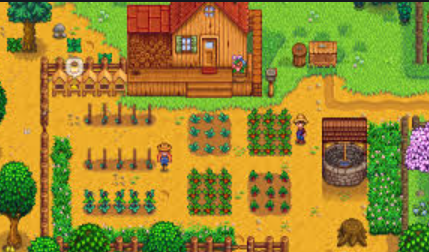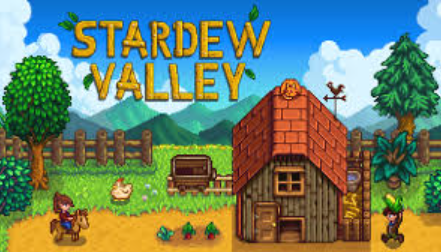In recent years, the gaming community has witnessed a surge of interest in indie farming and life simulation titles. We explore the unique features that make these games appealing to a broad audience, highlighting the engaging blend of farming, exploration, relationship building, and immersive storytelling. Our guide offers an in-depth look at the genre, examining why games like Stardew Valley have captured the hearts of many and presenting a curated selection of similar titles that promise rich gameplay experiences.

An Introduction to Indie Farming and Life Simulation Games
Indie farming games have emerged as a distinct genre within the broader world of simulation titles. They combine elements of traditional farming with role-playing mechanics, allowing players to cultivate crops, raise animals, forge friendships, and even explore mystical realms. The charm of these games lies in their ability to offer a peaceful yet engaging escape from the pressures of daily life. By immersing players in a world where time moves at a gentler pace and every decision influences the unfolding narrative, these games create an atmosphere of creative freedom and relaxation.
Stardew Valley has become synonymous with the genre, celebrated for its simplicity, depth, and unexpected narrative twists. It set a benchmark for how small, independently developed games could capture mainstream attention, blending retro graphics with modern gameplay mechanics. Fans of Stardew Valley appreciate the balance between the daily routines of farm management and the thrill of discovering hidden secrets within a sprawling world. Inspired by this success, numerous titles have emerged that echo its core appeal while adding unique twists to the formula.
What Sets These Games Apart
Games like Stardew Valley have resonated with players due to their distinctive combination of features. First, the art style often pays homage to classic 16-bit games, evoking nostalgia while presenting a visually appealing world. The environments are thoughtfully designed, with vibrant colors that reflect the changing seasons and the progression of the game. Second, the gameplay offers a mix of structured activities and open-ended exploration. Whether it’s tending to crops, engaging with quirky townsfolk, or embarking on a quest to uncover ancient mysteries, players are constantly presented with choices that affect their in-game destiny.
Another crucial aspect is the emphasis on community and relationships. Unlike many high-octane action games, farming simulators encourage players to slow down and appreciate the nuances of social interaction. From helping neighbors in times of need to celebrating festivals, the social component adds depth to the overall experience. This blend of personal achievement, creativity, and social connectivity is what continues to attract a diverse group of players to the genre.
The Evolution of Indie Farming Games
A Closer Look at Genre Innovation
The evolution of indie farming games has been driven by a desire to innovate within familiar frameworks. We have seen titles that not only replicate the charming aspects of Stardew Valley but also expand on them by introducing complex crafting systems, intricate relationship dynamics, and even combat elements. This evolution reflects a broader trend in the gaming industry where independent developers experiment with merging genres to create hybrid experiences that cater to both casual and hardcore gamers.
One significant development in the genre has been the integration of storytelling with gameplay mechanics. In many modern farming simulators, narrative elements are woven into daily tasks. For instance, the discovery of a rare artifact might unlock a series of quests that reveal the history of the game world. These narrative threads give context to mundane activities such as planting seeds or harvesting crops, turning routine tasks into steps toward a larger, unfolding story. This approach has not only deepened the engagement of players but also set the stage for more dynamic and interactive storytelling in future titles.
Moreover, many developers are placing increased emphasis on community-driven content. Updates and expansions are frequently released to keep the game fresh, often incorporating player feedback to refine mechanics and introduce new features. This iterative process has been instrumental in maintaining a loyal fan base and ensuring that the gaming experience evolves in step with player expectations.
Popular Titles in the Genre
Several games Several gameshave emerged that offer experiences similar to Stardew Valley, each with its own unique flair. We highlight a few notable examples that have garnered attention from the gaming community.
Harvest Moon / Story of Seasons
One of the pioneers in the farming simulation genre, Harvest Moon (now often rebranded as Story of Seasons due to licensing changes), continues to influence the design and mechanics of modern titles. These games emphasize traditional farming tasks such as crop cultivation, animal husbandry, and seasonal events. Players are encouraged to build relationships with town residents and uncover hidden stories behind each character, creating a rich tapestry of life simulation that is both engaging and emotionally resonant.
My Time at Portia
My Time at Portia takes the core elements of farming simulation and expands them into a post-apocalyptic setting filled with mystery and adventure. Players not only manage a workshop and farm but also explore ancient ruins, craft elaborate machinery, and build intricate relationships with the townspeople. The game balances a robust crafting system with exploration, inviting players to immerse themselves in a world where creativity and strategy go hand in hand.
Graveyard Keeper
For those seeking a darker twist on the farming simulator, Graveyard Keeper offers a unique blend of macabre humor and meticulous management. Rather than tending to a farm in the traditional sense, players manage a medieval graveyard, dealing with themes of death and the supernatural. The game’s unconventional approach has earned it a dedicated following, as it challenges the norms of the genre by mixing somber themes with engaging gameplay mechanics.
Garden Paws
Garden Paws invites players to manage a small farm on a picturesque island while simultaneously running a shop. The game’s emphasis on both agricultural management and economic strategy offers a dual-layered gameplay experience. With an art style that is both charming and detailed, Garden Paws appeals to players who appreciate a blend of relaxation and strategic planning.
Farm Together
Farm Together focuses on cooperative gameplay, allowing friends to join forces in managing a thriving farm. The game offers a large variety of crops, animals, and decorative items, encouraging players to collaborate and share in the rewards of their hard work. Its emphasis on community and shared achievements mirrors the social elements that have made Stardew Valley such a beloved title.
Expanding the Horizons: A Deeper Exploration of Game Mechanics
Immersive World-Building and Narrative Depth
One of the defining features of games like Stardew Valley and its counterparts is their commitment to creating immersive worlds. Developers invest significant time in designing environments that evolve with the seasons, ensuring that each phase of the game feels distinct. The narrative depth is not solely confined to the main storyline; rather, it is interwoven into everyday interactions and activities. As players tend to their farms, they encounter an array of characters, each with their own backstories, challenges, and ambitions. This interplay between character development and environmental storytelling creates a living, breathing world that feels authentic and engaging.
Furthermore, the integration of quests and side missions adds layers of complexity to the gameplay. For instance, a simple task such as delivering a package can lead to unexpected encounters that uncover long-forgotten secrets or forge new alliances. These elements not only enrich the narrative but also provide a sense of purpose and progression that keeps players invested in the game over the long term.
The Role of Customisation and Personal Expression
Another appealing aspect of these games is the extensive customization available to players. From designing the layout of a farm to choosing the décor for a personal home, customization is a key factor that allows players to express their creativity. We have observed that the ability to tailor every aspect of the game world to one’s liking is instrumental in building an emotional connection to the virtual environment. This degree of personalisation fosters a sense of ownership and pride, making the gaming experience uniquely satisfying.

Frequently Asked Questions (FAQs)
What defines a game like Stardew Valley?
Games like Stardew Valley combine elements of farming simulation, role-playing, and life management. They typically feature an open-ended gameplay structure, rich storytelling, and a high degree of customization. The focus on building relationships, exploring a dynamic world, and managing daily activities creates a unique and immersive experience.
Are there multiplayer options available in these games?
While many titles in this genre are primarily single-player experiences, some, like Farm Together, offer cooperative multiplayer modes. These options allow players to collaborate and share the farming experience with friends, adding a social dimension to the gameplay.
How do narrative elements enhance gameplay in these games?
Narrative elements in farming simulators are intricately woven into everyday activities. Quests, character interactions, and seasonal events all contribute to a larger, evolving story. This narrative depth gives players a sense of purpose and progression, making the routine tasks of farming more engaging and rewarding.
Can these games be played on multiple platforms?
Most games similar to Stardew Valley are available on various platforms, including PC, consoles, and sometimes mobile devices. The accessibility of these games has contributed significantly to their widespread popularity, allowing players to enjoy the experience regardless of their preferred gaming setup.
What are the benefits of playing indie farming simulators?
Indie farming simulators offer a peaceful escape from high-stress environments by focusing on creative expression, strategic planning, and community building. The calming gameplay mechanics and engaging narratives provide both relaxation and a sense of accomplishment, making them a popular choice for a wide range of players.
Conclusion
We have explored the captivating world of indie farming and life simulation games, delving into what makes titles like Stardew Valley so enchanting. From immersive world-building and narrative depth to the emphasis on customization and social interaction, these games provide a rich and varied gaming experience that appeals to diverse audiences. Whether you are a fan of traditional farming simulations or you seek something that blends unique narrative twists with engaging gameplay, there is a title within this genre to suit every taste. We encourage you to embark on this journey, discover new worlds, and experience the satisfaction that comes from building a virtual life with creativity and passion.